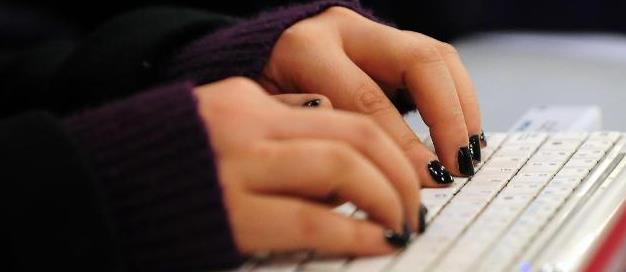[An estimated one third of the world’s population (or 2.3 billion people) is online (AFP Photo/Frederic J. Brown)]
Ottawa (AFP) – Affordable access to the Internet should be a human right, as it represents hope for political freedom and economic prosperity to many around the world, according to a survey Monday.
Most people also do not want any one nation or organization to manage this global network of computers, in order to prevent crackdowns on free speech and political expression.
But they are split on who then should run it.
The CIGI-Ipsos survey of 23,376 people in 24 countries was unveiled at the start of a two-day meeting in Ottawa on Internet governance.
An estimated one third of the world’s population (or 2.3 billion people) is online.
According to the Global Commission on Internet Governance, which is hosting the Ottawa conference, the world is at a crossroads, with competition for power and influence of all aspects of the Internet heating up.
The group, chaired by former Swedish politician and diplomat Carl Bildt, is scheduled to present policy recommendations for the future of Internet governance in 2016.
More than 80 percent of survey respondents said Internet access is key to their economic future and livelihood, and important for free speech and political expression, and so it should be a right.
Users in Africa and the Middle East were most likely to hold this view.
“Overwhelming global public support for the idea that access to the Internet should be a human right also shows just how important the Internet has come to freedom of expression, freedom of association, social communication, the generation of new knowledge, and economic opportunity and growth,” the commission’s Fen Hampson told a press conference.
Asked who they most trusted to set the rules for web access and usage, a small majority (57 percent) of respondents chose a combination of technical experts and engineers, non-governmental groups and others.
Fifty percent felt the United Nations would do a good job while 36 percent supported the United States taking a lead role.
The survey also found that Internet users worldwide are increasingly concerned about online privacy (64 percent), and feared hacking of their bank accounts and theft of their private data such as photos and messages.
As well, they worry about government censorship and spying.
North Americans and Europeans were least likely to fret about their personal information being compromised (35-36 percent, respectively) but were also least likely to share personal data online.
The poll was conducted October 7 to November 12 in Australia, Brazil, Canada, China, Egypt, France, Germany, Great Britain, Hong Kong, India, Indonesia, Italy, Japan, Kenya, Mexico, Nigeria, Pakistan, Poland, South Africa, South Korea, Sweden, Tunisia, Turkey and the United States.
– AFP
